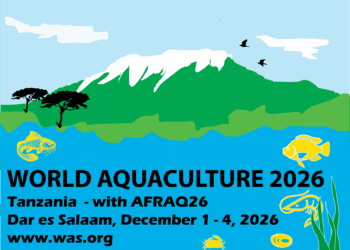FAO, climate risks could impact fish biomass – New projections highlight potential climate risks to exploitable fish biomass in almost all regions of the world’s oceans, including major producing countries and those with a high dependence on aquatic food. Clearly outlining this profile is a recently published report by the Food and Agriculture Organisation of the United Nations (FAO).
Global projections of exploitable fish biomass show declines of more than 10 percent, particularly in the high emissions scenario, by mid-century for many regions of the world, according to the paper Climate Change Risks to Marine Ecosystems and Fisheries: Projections to 2100 by the Fisheries and Marine Ecosystem Model Intercomparison Project.
By the end of the century, under the high emissions scenario, which predicts global warming of 3-4.0 °C, declines will worsen by up to 30 per cent or more in 48 countries and territories.
In contrast, in the low emissions scenario, which predicts global warming of 1.5-2 °C, changes stabilise between zero and a decrease of 10 per cent or less in 178 countries and territories by the end of the century.
Among the most significant declines are those in major fish-producing countries, which worsen towards the end of the century in the high emissions scenario, e.g. by 37.3 per cent for Peru’s exclusive economic zones and 30.9 per cent for China’s, but stabilise in the low emissions scenario.
The report was produced by the Ecosystem Model Intercomparison Project (FishMIP), an international network of researchers working with FAO to understand the long-term impacts of climate change on marine ecosystems and fisheries through a series of state-of-the-art numerical models. The paper was presented during the thirty-sixth session of the Committee on Fisheries (COFI36) being held in Rome until tomorrow 12 July 2024 at FAO headquarters.
The report follows the latest edition of The State of World Fisheries and Aquaculture (SOFIA), which showed that world fisheries and aquaculture production reached a new high of 223.2 million tonnes in 2022.
Reducing threats to marine ecosystems
“Understanding the potential impacts of climate change on marine ecosystems and their fisheries, as well as the associated uncertainties, is critical to designing adaptation programmes at an appropriate scale,”
said Manuel Barange, FAO Assistant Director-General and Director of the Fisheries and Aquaculture Division.
“Lower emissions significantly reduce end-of-century biomass losses for almost all countries and territories compared to the high emissions scenario. This highlights the benefits of climate change mitigation measures for fisheries and aquatic food,” he added.
Comparing the projected losses in both scenarios by the end of the century, it emerges that emission reductions have resulted in significant benefits for almost all countries and territories.
This includes small island developing states, where people are heavily dependent on fisheries for food and income and where the ecological and socio-economic risks posed by climate change are highest. For example, among Pacific island states, 68-90 per cent of the extreme end-of-century losses projected under high emissions conditions are avoided by the low emissions scenario for the federated states of Micronesia, Nauru, Palau, Solomon Islands and Tuvalu.
Achieving the Blue Transformation
The report also emphasised that in order to help countries realise FAO’s Blue Transformation vision of more resilient, equitable and sustainable aquatic food systems, future FishMIP research will need to include other ocean and coastal uses besides fisheries.
This would achieve a more holistic view of marine natural resource management in the face of climate change and inform trade-offs between sectors, including adaptive fisheries management and broader agri-food policies, aligned with the priorities of FAO’s Climate Change Strategy and Action Plan. It would also address linkages with freshwater and terrestrial resource use, for example the dependence of aquaculture on both marine and terrestrial systems, to help support policy directions at the nexus of climate change, biodiversity, water and food security and health.
An international network of researchers
FishMIP was officially launched in 2013. It provides knowledge to industry and governments to support effective planning for adaptive and resilient fisheries sectors in the context of climate change.
In 2024, FishMIP2.0 was established to increase the reliability of modelling projections and respond to a broader set of policy issues relevant to food security and marine resource management, with climate change remaining the main theme.
FAO, climate risks could impact fish biomass








